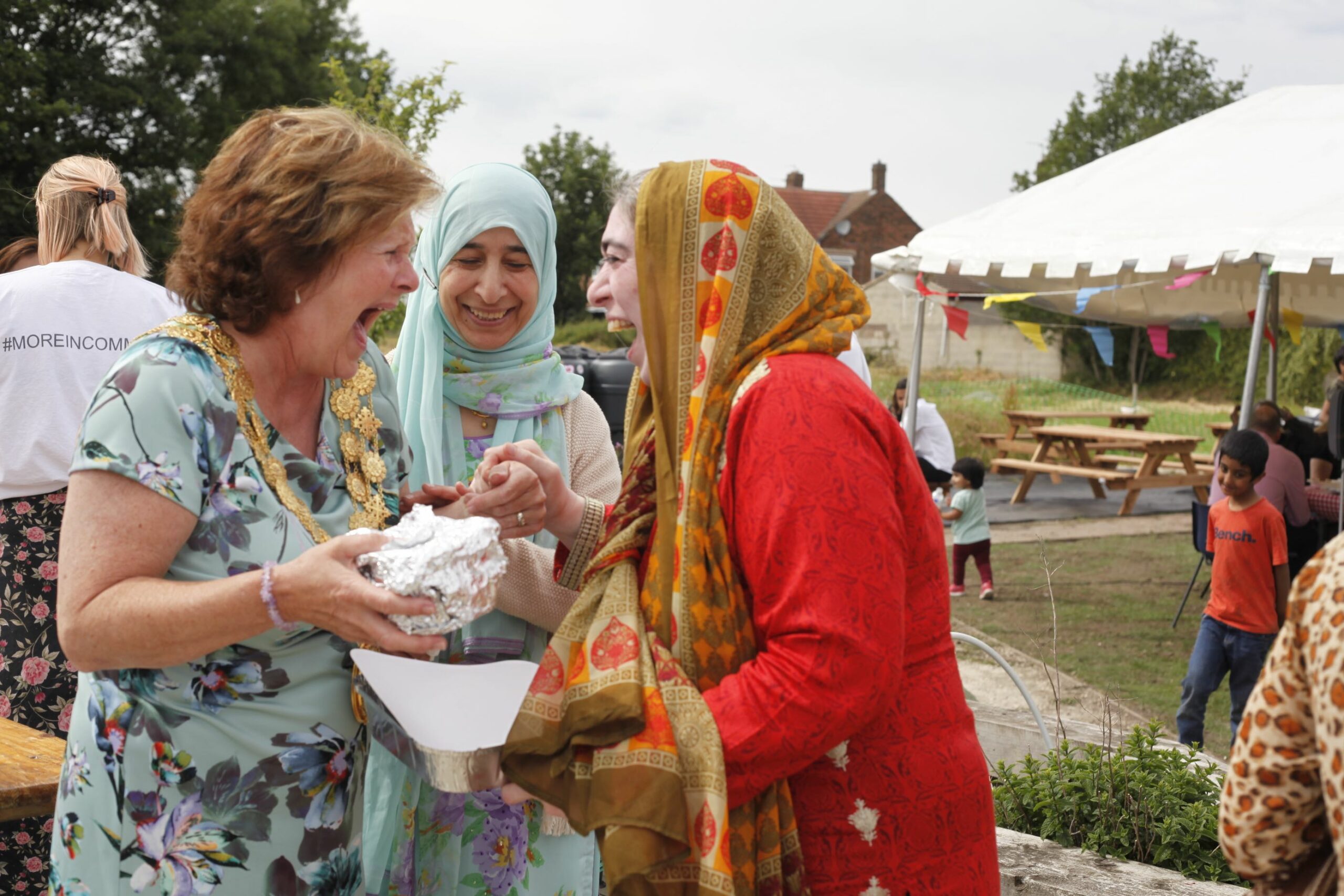Jill Rutter explores how Radical Kindness unlocks social connection and what we can do to create the right conditions for it to flourish.

If social connection is the key to bridging divides, it’s time to do something radical

Twenty years ago next week, we saw violent unrest in Oldham, a Lancashire town of just under 100,000 people. Three nights of riots followed a long period of mutual tension between the white and South Asian populations of Oldham. The violence was set in a context of economic decline, far-right activity and high levels of residential segregation – the Cantle Report into the violence described people in the town leading ‘parallel lives’. The Oldham riots and subsequent violence in Bradford, Burnley and Leeds, served as a wake-up call, showing that more action was needed in many of our towns and cities to encourage meaningful contact across social divides.
That everyone needs to play their part in bridging social divides was an unequivocal recommendation of both the Cantle and Ritchie reports into the unrest. This includes central and local government which both need to provide strategy and funding. Education, business, sport and arts, faith and civil society organisations also need to be involved in bringing people of different backgrounds together, and civic society and faith can make their own contribution to bridging social divides. Individuals can also make a difference − volunteering or taking time to talk to a neighbour are things that all of us can do that help build a more connected society.
As the anniversary of the Oldham riots approaches, Spirit of 2012 has been thinking about what we can do as a funder. Belong – the Cohesion and Integration Network, and one of our grant holders is publishing a new report this week about ‘radical kindness’. Spirit of 2012 has funded this work to capture stories of people undertaking acts of kindness that specifically bridge social divides because we know that events, and participating in sports, arts and volunteering can, with the right funding and intention, help to bridge divides. Belong has also examined the local conditions that need to be put in place to encourage people to reach out to those they see as different to themselves.

Acts of kindness across social divides help break down ‘them and us’ mindsets where people strongly identify with their in-group and hold negative views about members of an out-group, or see them as a threat. It helps to reduce stereotyping and prejudice, as well as developing greater empathy, trust and shared ‘more in common’ identities. Research shows that these positive changes can be achieved through direct social contact between people, indirect social contact (having friends who have friends from the out-group), or what is known as contextual social contact, where we see other people mixing with people with out-groups.
As part of the radical kindness projects, Belong has collected and filmed stories of people who last year reached out to those who were different to themselves. These films are moving, real-life examples of contextual social contact. Among the projects featured is Calder Community Care, a group set up in 2020 by a member of the public to help those struggling because of the pandemic. Another film comes from My Pockets, an arts organisation which works in Hull and East Yorkshire. My Pockets is another Spirit of 2012 grant holder which, last year, brought women and girls with caring responsibilities together to make music.
As a funder, we will continue to support projects which bring people of different backgrounds together. Sustained social contact that leads to friendships is more effective than fleeting interactions in breaking down ‘us and them’ divides. Sports, arts and community projects which bring people together in pursuit of common interests provide such opportunities for sustained social contact but there needs to be an intentional support for social mixing to make this happen.
As funders, we will continue to support projects that provide the basis for new friendships and sustained social contact. One of the ways that funders can help create the condition for social cohesion is to understand that partnership building, social mixing and developing an appropriate way to measure success takes time and trust, and needs investment. Spirit of 2012 is funding the Great Get Together, organised by the Jo Cox Foundation which takes place on 18 – 20 June. Breaking Boundaries is another Spirit of 2012 grant holder and is a project that aims to bring young people, their families and communities together through cricket – as players, spectators, or volunteers in grassroots sports organisations.
Not every bridging initiative that Spirit of 2012 has funded has achieved its aims, with some organisations facing challenges. As a funder, we think that reflective learning is an essential part of projects that aim to bring people together. It is also important to collect evidence about the impact that projects have made in local communities, starting with detailed beneficiary data and an understanding of who is and, critically, who isn’t in the room, and how to overcome the barriers that might prevent them engaging.
We also believe that organisations who work to bridge social divides showcase what they do and make the case to government for funding and strategy. In the two decades since the Oldham riots, we have had many reviews and reports, but none of the four nations of the UK has published an integration strategy. Belong’s new report achieves this aim, demonstrating clearly why bridging social contact is so important.
Find out more about Radical Kindness and download the report, visit the Belong website
Watch the five short Radical Kindness films on YouTube
Read about the Spirit of 2012 grant award to Belong for Radical Kindness
